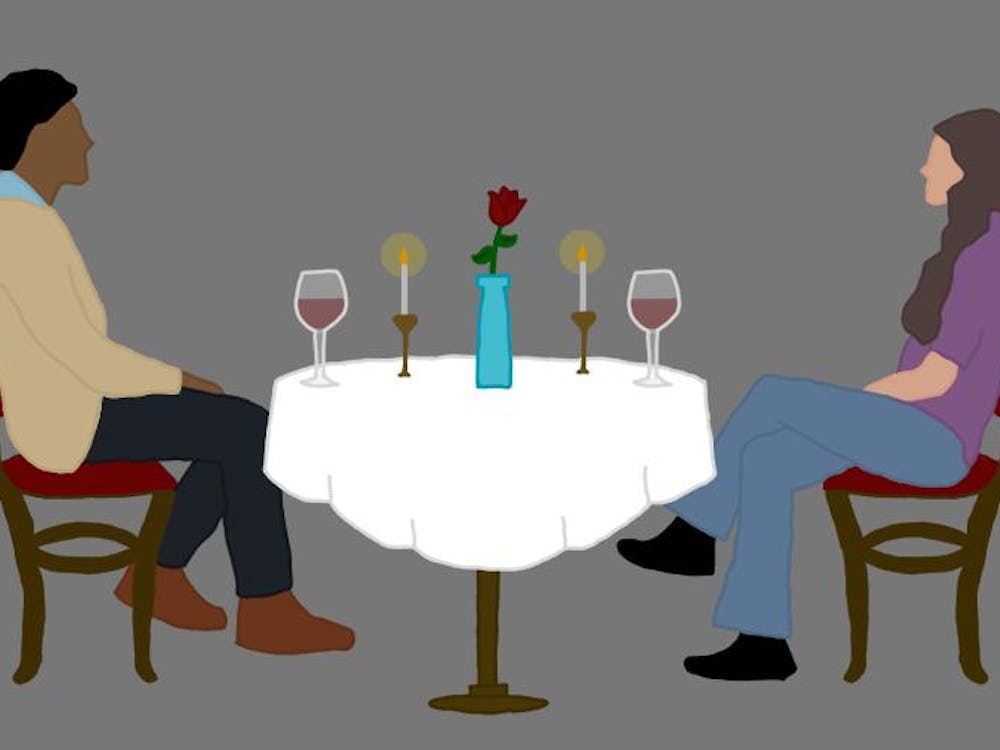C alendars, clocks, watches or cell phones are not needed to tell what day of the week it is. One only needs to pay attention to the casual chatter heard around Grounds: By recognizing the cookie-cutter conversation pieces, one can easily pick out what day of the week it is. On a side note, this is a real advantage for many University students who have a tendency to come out of alcohol-induced comas, awaken from Rip Van Winkle-esque naps or stumble out of Club Clemons and not know what day it is.
Each day has its own ritualistic place within the cycle of the week and distinct dialogues to go along with them. Case in point: take Monday and Tuesday, the start of the work week. Upon entering the first session of your Monday-Wednesday-Friday or Tuesday-Thursday classes or coming across friends you normally see early in your weekly routine, you inevitably will ask or be asked, "How was your weekend?" So begins the recounting of the weekend's awesome events in the typical storytelling style of rattling off a list of parties hit up and people seen. This is also the time for those who had an especially good time to ask for help in constructing a storyline of their weekend. Everyone else will downplay their weekends talking about how they just "chilled," "hung out," "got a lot of work done" or "caught up on some sleep." So in effect, you can tell it's the start of the week by the way conversation is tied to the past weekend.
Wednesday: hump day, the middle of the week, the day when conversation hovers briefly on the current ongoings and events. Amongst the talk of homework and reading, there begins a whisper of the future tense: "What are you going to do this weekend?" For many, the weekend is just a day away -- they can almost taste it, their mouths are dry from only three days of the daily grind. But not to worry because ...
Thirsty Thursday comes in a flash and quenches the thirst of the weary. The weekend thunders in on the day named for Thor, the Norse god of lightning. The talk is of geography: "Are you going out tonight? Where are you going?"
By Friday, the weekend is in full swing on the only day named for a woman. It truly is "Ladies' Night," as the day is named for Frigg, the wife of Odin and goddess of love and beauty. A typical date night, conversation centers on attire, glamor, hotness and, you know.
By Saturday, everybody is way out there on the day named for Saturn, and by now, has caught a nocturnal fever for which the only prescription is the last gasp of the weekend.
Sunday may bring the most confusion, because it is an amalgamation of all the days. The partiers stagger back from the frat house in the wee hours around the same time that the pious head off to the house of God. This all before the assault on the libraries, as most students miss the point of the day of rest. Containing elements of the work week and the playful weekend, we are left to ponder whether this period is the conclusion of the week or the start of the next cycle.
If any of my generalizations about the weekly discourse hold any truth, they point to the fact that the weekend dominates the thoughts and language of the average student. Many, it seems, live for the weekend, dreading the days of the week and counting down until Friday.
But wait, isn't that throwing away five-sevenths of your life only to truly live on two of the seven days of the week? The more social University students, it seems, have found a solution: Merely extend the weekend, or at least the spirit of the weekend, into the work week. Take Halloween this year, which fell on a Wednesday. That means you got to celebrate it multiple times -- during the preceding weekend and again on Wednesday night. Thirsty Thursdays didn't just get its name for alliteration, and Wednesday is being called the new Thursday. If you're scoring at home, that's four for the weekend, three for the week. Why not take it all the way and have the weekend nights take back the weekdays? It's the classic Christmas year-round dilemma -- you need the drudgery of the week to make the weekend fun. The very wording of weekend presupposes the week.
So listen up this coming week, and you'll see that we don't need dates. We just need the language of the week to place ourselves within the week(end) cycle. We keep track of time not with numbers but by placing the events of our lives within the ritual of the week.
John's column runs biweekly Friday. He can be reached at jgregory@cavalierdaily.com.






